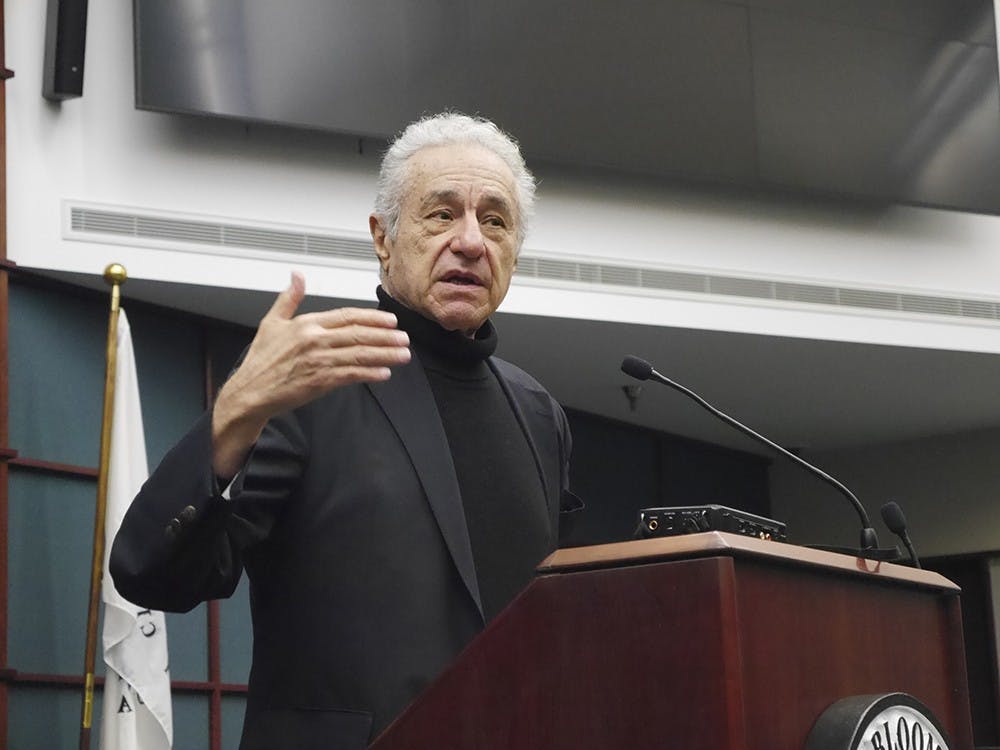Alperovitz, a founder of the Democracy Collaborative and professor at the University of Maryland, College Park, gave a talk titled “Transforming Bloomington’s Economy: Community Wealth in the Age of Cooperation” Thursday night in the City Hall Atrium. Democracy Collaborative is a national organization focused on community economics.
“We are facing a systemic crisis, not a political crisis,” Alperovitz said. “No matter who gets elected, by and large, the trends get worse.”
The political economist and historian pointed to stagnating wage levels, inequality and mass incarceration as examples of democracy’s failings.
But it’s not necessary to accept the status quo, Alperovitz said. Communities feel the crisis, and the popularity of Bernie Sanders, a democratic socialist presidential candidate, shows people want systemic change, he said.
“The thing I find most difficult for most people to do is see ourselves in history,” Alperovitz said. “If you look at history, systems come and go.”
He argued Americans should think about how they might start bringing about the needed change by starting in their communities.
“Ultimately we will transcend this system,” he said. “That’s almost inevitable.”
The main question is the direction the change will take, Alperovitz said. Will the country move toward violence and fascism, which Alperovitz called “real possibilities,” will it fall into the “other trap” of state socialism, or will it move toward democratization?
The professor argued local experiments occurring across the country are laying the groundwork for larger transformations that will change the distribution of wealth and therefore the workings of politics.
“Can we do that? Might it be possible?” he asked. His proposal is to create a system where people, rather than corporations and the state, own wealth.
Alperovitz argued Mayor-elect Hamilton will have the opportunity to bring about practical and creative changes in Bloomington. The professor pointed to the co-op systems already functioning in Bloomington and argued that the co-op could be viewed as a model for broader wealth-building systems.
Mayors across the country are promoting work-owner programs, in which the worker owns the business, Alperovitz said. Madison, Wisconsin; New York City; Pittsburgh and more than 15 other cities are investing in co-op systems.
He described a model in Cleveland in which several worker organizations in a community banded together. The neighborhood of about 40,000 makes the decisions, and the co-ops contribute money to fund new co-ops.
“You could do that here,” Alperovitz said. “It is doable.”
Land trusts, credit unions and socially owned electric businesses are other examples of businesses that help keep money in the people’s hands.
“I’m talking about changing the system,” Alperovitz said. “You with me?”






